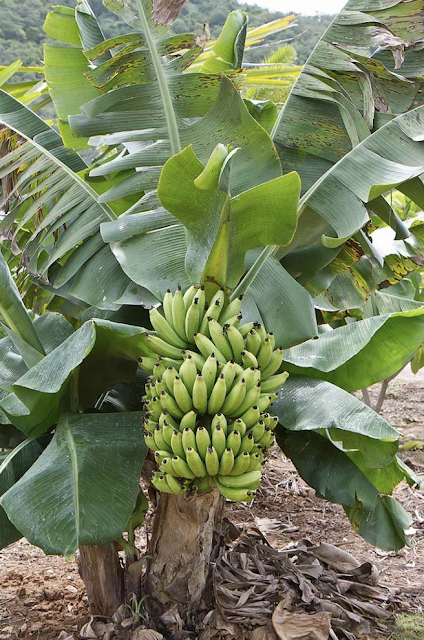At many gatherings in the USA, you might find yourself engaging in casual conversation with folks about politics, sex, substance use, religion, and more. But beyond all that potential TMI, folks rarely talk about how much money they make or have.
We've been trained to be secretive about money. In fact, it may be the most secretive part of your life. If you have a lot of it, you're probably very private about just how much you have, in order to protect your wealth, and maybe because you don't necessarily want people to know how you acquired it. If you only have a little money, you're probably very private about it because you've been taught to be ashamed of being monetarily poor, like it's a moral failing.
Capitalism in fact relies on this secrecy. If we have lots of money, capitalism has trained us to hoard it and hide it, and devote ourselves to expanding our monetary wealth. Folks like Donald Trump base their power on a mystique of wealth, while never actually revealing their net worth, or exaggerating it to make themselves seem more powerful and influential. Conspicuous consumption is practiced by folks of all income levels as a pretense of wealth, like the way we're taught to stand tall and raise our arms when we encounter a bear in the wild, to appear larger and more powerful than we actually are.
One of the results of the secrecy around money is that the wealth gap becomes ever larger. The wealthy find ever more ways to extract money, find tax loopholes, and monetize the hell out of everything, including air, water, and health itself. The poor become even more marginalized as prices continually rise, education becomes less and less accessible, and wages stagnate. One of the ways we can shrink the wealth gap is by breaking the taboo of silence over money with open bookkeeping, for businesses and organizations, and by talking openly about money with friends, family, and others we interact with.
What if instead of dollars we had bananas? It would be obvious who had many and who had few. Those with many would feel awkward, to say the least, to be seen hoarding more bananas than could be eaten. Those with few bananas would naturally be given more bananas, because no one wants to see another go hungry. Money is currency: meant to flow. Like water, it finds its level. It seeks horizontality, not verticality. But when secrecy is enforced, we build dams that don't give a chance for money to flow. Instead it stagnates, pools, gets rancid, while some flood and others die in drought.I've been rich and I've been poor. For the first 50 years of my life, I experienced financial stability and a middle class or upper middle class life. I walked away from 1.5 million dollars of assets when my marriage ended in 2012. The money felt ill-gotten, a huge karmic load I did not feel capable of processing in a healthy and equitable way. In my very bones, capitalism felt irreparably harmful and an extension of inequity, and I wanted no part of it.
Since 2012, I've lived modestly on very little money, doing what I love, in voluntary simplicity. I practice gift economy, barter, and creative exchange. My motto is "If I won't do it for free, I won't do it for money." I live a life of incredible abundance on about $20,000/year. Liberating myself from wealth has proven to be spiritually liberating as well. I grow food, I forage, I skillshare with friends. I belong to cooperatives. I've learned how to make do, do without, or make my own. I reduce, reuse, recycle, and repurpose. I produce less than one small produce bag of garbage every 2-3 weeks.
I reluctantly live in a capitalist society. My goal is to find
cooperative housing, where I can live in community, have access to a
garden, and invest in collective liberation. Meanwhile, I pay $1500 in
rent every month for a high-rise apartment, owned by a friend who is
willing to receive an amount lower than market rate. To keep a roof over
my head I must engage in some capitalist practices. But I am continually
striving to move beyond these practices. I encourage those who have more to
give more, and for those who have less to take more. As a result I have
students who pay me very little, and others who compensate by paying
more.
I will not glorify poverty. I recognize that our class structure
requires impoverishment of millions of people, who are suffering and
dying because of the restrictions imposed on them. I recognize that my
relationship with money comes from a position of privilege, as someone
who has always lived with generational financial stability, and who has many non-monetary resources to draw from.
As yoga practitioners, we become more and more sensitive to our own bodies. As this sensitivity develops, we become more sensitive to each other, and to the collective and transgenerational body. We also become more sensitive to other non-human beings: the land, the trees, animals, wind, and water. We cannot help but want to be harmonious with all these beings.
As such, accruing material wealth is counterintuitive and counterproductive. We recognize that the consumption that capitalism requires has been destroying life all around us. We yearn to live in greater balance with other beings, human, and more-than-human.
The same way yogāsana trains me to be in uncertain and uncomfortable positions with calmness and confidence, I have been practicing being comfortable with a low financial threshold. Somehow I always have enough to travel, study, grow, and thrive. Ironically I experienced more scarcity when I had lots of money than I do now, because of the socially conditioned drive to continually protect my assets, and the time and energy this required. Besides, it's all relative. I try to keep about $10k in savings for any needs that may arise, while knowing that for so many, this is an impossibly high threshold, and for others, it's such a pittance it's hardly worth it.
I renounced almost all my assets when I left my marriage: 2 houses, retirement funds, stocks and bonds.... I could not justify holding onto anything contributing to the bloated militaristic, capitalist, racist patriarchy. Also, I instinctively knew that to be in solidarity with my community, I had to expose myself to the same risks. Water seeks its level. I knew that to build community, I could only be trusted if I allowed currency to flow like water. I also knew that coming into a community with a disproportional level of assets would inevitably create a disproportional, imbalanced level of power and responsibility. I would be perceived as the de facto leader if I held the purse strings, and as a non-Black newcomer to Detroit, where I moved in 2013, I knew this would be deeply problematic. I yearned to contribute to the fabric of community already there, and not to displace anyone or anything.
This is why cooperatives have not become the dominant organizational structure. Those with material wealth have been deeply conditioned to guard it with their life, to hide it, and to continually grow it, not share it. Those with less material wealth have been conditioned to feel ashamed, and not recognize the value of their largely uncompensated skills.
The opposite of scarcity is not wealth. It's relationships. It's community. I'm wealthy because I have good neighbors. I share my resources with them. I help with dog walks and Costco runs and other errands. Together, we held a grieving ceremony after the Uvalde shooting. I invited them to my Chuseok potluck. I ask them to help me with rides to the airport, borrowing tools, and sharing internet. I'm wealthy because I have flexibility in my schedule that allows me to spend ample time with my children and grandchildren, and to cook and share food. I'm wealthy because I have developed valuable skills as a healer and teacher.
I'm wealthy because I have experienced material wealth and rejected it. I recognize that it takes a tremendous inner safety net to be able to walk away from money. I also recognize that it's the ultimate power move, because it means you cannot be bought nor sold, and that you exist and thrive beyond the limits of money. I know that I had to experience wealth before I could reject it, and I completely understand why others do not have this relationship with money. I support those who have been intergenerationally and systemically impoverished in accumulating wealth. I had to go through the entire cycle of rich to poor to experience both the creative and destructive power of money.
I am not unique by any means in choosing a life not based on material wealth. I know lots of folks in Detroit who lead revolutionary lives, and have long rejected the trappings of capitalism. They live on cash, have multiple hustles, live in multigenerational households, grow food, look out for their neighbors, belong to co-ops, and share, share share. The way I live has always been the indigenous way, but our lives have been corrupted by the individualistic demands of capitalism.
To be materially poor does not necessarily lead to scarcity and suffering. Finding alternatives to consumerism and capitalism can be incredibly inspiring and empowering. Yes, let's talk about money, whether you have it, and want to use it to disrupt the destructive status quo, or whether you don't have it, but want to live abundantly and joyfully. Stop hiding your bananas. Let the water flow.


No comments:
Post a Comment